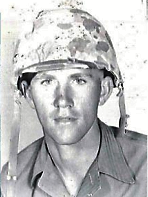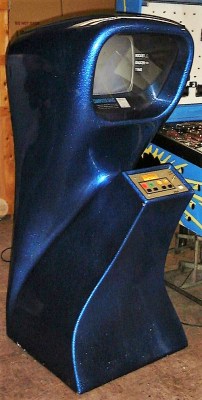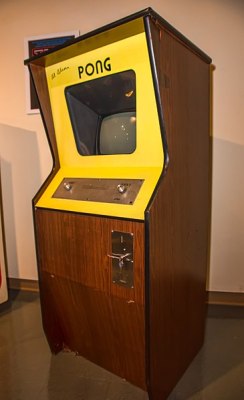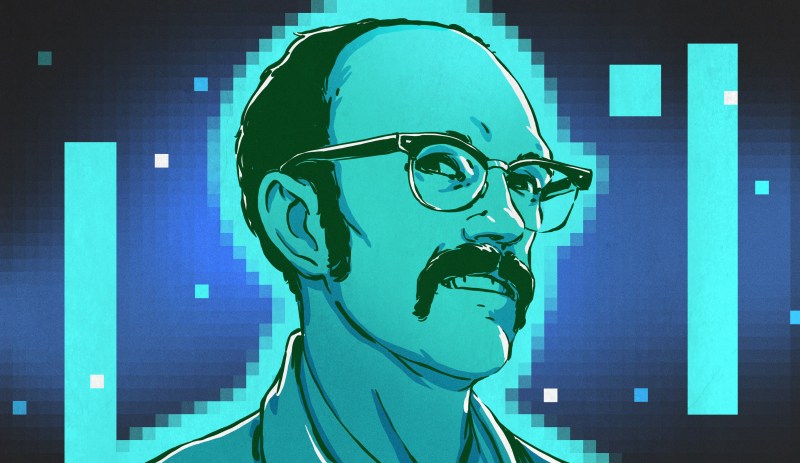It may be hard for those raised on cinematic video games to conceive of the wonder of watching a plain white dot tracing across a black screen, reflecting off walls and bounced by a little paddle that responded instantly to the twist of a wrist. But there was a time when Pong was all we had, and it was fascinating. People lined up for hours for the privilege of exchanging a quarter for a few minutes of monochrome distraction. In an arcade stuffed with noisy pinball machines with garish artwork and flashing lights, Pong seemed like a calm oasis, and you could almost feel your brain doing the geometry to figure out where to place the paddle so as not to miss the shot.
As primitive as it now seems, Pong was at the forefront of the video game revolution, and that little game spawned an industry that raked in $108 billion last year alone. It also spawned one of the early success stories of the industry, Atari, a company founded in 1972. Just last week, Ted Dabney, one of the co-founders of Atari, died at the age of 81. It’s sad that we’re getting to the point where we’re losing some of the pioneers of the industry, but it’s the way of things. All we can do is reflect on Dabney’s life and legacy, and examine the improbable path that led him to be one of the fathers of the video game industry.
Anything, Even Electronics

Samuel F. Dabney, who preferred the nickname Ted, was born in 1937 – too late to experience the Depression and World War II, but just in time to be influenced by them. A native San Franciscan, he seems to have inherited the values of thrift and shared sacrifice that very much defined the culture at the time. His work ethic and poor grades led him to a trade school where he learned drafting, which served as an entree into the working world while he was still in his teens.
After high school, Ted worked as a surveyor, but it was seasonal work that left him high and dry for the California winters. Looking for a steady paycheck, Ted enlisted in the Marine Corps for a three-year stint, on the condition that he get training in an advanced technical specialty. Ted eventually got into electronics school, a sixteen-week immersion course that gave him the basics and led to him working on complicated systems like multiplex radios.
After the Corps, Ted looked for work so that he could afford to go to college. Jobs in electronics were plentiful in the late 50s in Silicon Valley, and Ted landed an engineering job at Ampex, the audio and video tape recorder company, working on military systems used to view spy plane film images. One day, a suit approached his bench while he was elbows-deep in a project and asked what he was doing. Ted said, “I don’t know if I can tell you about it. It’s all military.” The suit walked off, and Ted only found out later that it was Alexander M. Poniatoff, the “AMP” in Ampex. He had just brushed off the founder of the company.
Big Ideas in Silicon Valley

Ted’s work on military imaging systems would serve him well after meeting Nolan Bushnell, a new Ampex hire. Bushnell, a fellow electrical engineer, had the entrepreneurial spirit that was common in the Valley in those days. Nolan had seen Spacewar! at the University of Utah and decided to commercialize it. He originally pictured a mainframe behind the scenes with coin-operated terminals to play the game, but when that proved too expensive, he convinced Ted to help engineer a cheaper game using the video techniques he had learned at Ampex.

With a $100 investment each, Ted and Nolan formed a company to build games. Their first game would be Computer Space, a clone of Spacewar! in a futuristic cabinet. Despite $3 million in sales, the game was a flop.
But Bushnell and Dabney had enough money to try again, and with the company renamed Atari, a term from the game Go, they set about looking for the next big idea. Nolan wanted a driving game, but Ted dismissed that idea as too complex, so Nolan settled for a tennis game similar to one seen on the Magnavox Odyssey home game console as a practice game. They hired a programmer, Allan Alcorn, to build the game using the video circuitry Ted had built. Three weeks later, they were all addicted to the finished game, and realized they had a product.
They had 12 cabinets built and installed in various bars and restaurants in the area, unsure of what would happen. Then the quarters started rolling in. Amazed at their luck, Nolan and Ted were alarmed to hear that the prototype machine, which had been installed in a local bar, was broken. They dispatched Alcorn to fix it, who found people lined up waiting to play the machine as soon as it was fixed. The problem: they had jammed so many quarters into it that the coinbox overflowed and shorted the machine out. Pong was a bona fide hit.
Pong Goes Poof
Orders for more machines poured in. Ted had to scramble to get cabinets built, convert dime store black and white TVs into game monitors, and put everything together. Atari grew rapidly, moving to a larger space to build their machines, hiring new people, and still only barely keeping ahead of the Pong craze.
But in the frenzy of the young company’s growth, things started going bad. Nolan made management decisions that left Ted out, and fearing that the company was going down, Ted bailed. He stayed on friendly terms with Nolan for a while, even helping him turn his pizza restaurant idea into a reality that would one day morph into the “Chuck E. Cheese’s Pizza Time Theaters” franchise. But the restaurant fell on hard times in the early 80s, and when Nolan was unable to pay Ted for his work, they parted ways for good.
Free from the video game industry, Ted returned to electrical engineering, working for companies like Raytheon and Teledyne. But the corporate scene chafed, and eventually he just threw in the towel and moved with his wife to the country. They bought a small grocery store, added a deli, and lived a life of well-deserved quiet.
Few people get to claim, “I was there when…”, but Ted Dabney was certainly in the thick of things of an unintentional revolution that started an industry. That following his own path and doing what he loved led him there hold lessons for us all.















Born in the early 60s I was fascinated with computers when I was a teen. Even those were crude then. I got to see electronics and gaming go from rudimentary to what it is today. It’s hard to believe how fast things have changed and still changing. From simple ideas to very complex. Thanks to people like these pioneers that took a small step but had no idea how it would eventually changed the world.
“It may be hard for those raised on cinematic video games to conceive of the wonder of watching a plain white dot tracing across a black screen, reflecting off walls and a bounced by a little paddle that responded instantly to the twist of a wrist. But there was a time when Pong was all we had, and it was fascinating.”
Phht, I can remember going out back and watching grass grow. Kids these days and their AstroTurf.
My favorite joke – I wish I could recall who told it –
The town was so boring (How boring was it?) We used to lie down on Main Street, dump a bag of Cheetos on our chests, and let the birds pick them off.
How did you manage to live without the ability to record this to earn internet karma ??
Every time I read these retrospective types of articles, I always wonder to myself: “Did they know it was going to be as big/influential/important as it was when they were working on it?” Did Wozniak know when tinkering with the Apple II just how influential he’d be? Did Dabney know he’d start an industry?
Now, obviously we aren’t all going to create a disruptive industry and revolutionize the world with our next project or startup. But the potential is there and it should serve as motivation and a source of pride for that next IoT popcorn maker. Mom, I’m going to change the world I swear.
Changing the world, one virus at a time.
I dunno, the Morris worm changed computer security.
Wait a minute, didn’t Atari make a lot of more stuff than just Pong? It’s kind of a famous company… Is this some alternate reality where it went poof?
It didn’t take long for Nolan to sell it to Time/Warner who thought that video games would last forever. They tried to go with 8 bit computers, but the creative core split to form Amiga; then everything went bad and we are basically stuck with Win 10 forever. Jay Miner and his crew will long be missed.
There’s an alternate reality where computers still have keyboards built into the case
Just to mention that Atari ST1200 was a popular MIDI sequencer. At the end of ’90 (maybe even beggining of ’00) people were still using it (not only bedroom producers). I guess it didn’t have enough resources to crash that often. Heard it was also very easy to use.
How about “Atari Asteroids” or Atari “Armor Attack” the former was massive in commercial video games. Both were Vector Scan and used a single 1MHz 6502 CPU for everything. I was always amazed how Atari got that under-powered CPU to do so much.
Asteroids was one of the first major hits of the golden age of arcade games. The game sold over 70,000 arcade cabinets and proved both popular with players and influential with developers.
https://en.wikipedia.org/wiki/Asteroids_(video_game)
Well.. the post was about how Pong is what primed the pump for video games being a revenue generator alongside the pool tables pinball machines, and the occasional hockey puck bowling game. Around here I can’t recall the games you mentioned being available where I drank beer and chased women.
Now I want to try to make a retro hardware game of my own
I think Asteroids was the birth of the phrase “pew pew pew”
thanks for remind us our childhood. I still remember the day when my father bought me the first attari video game at the age of 5. It felt so great and I was so impressed with the step of my father.
Upon entering your website, I immediately won a coupon. I’m not going to use it, so please can you save it to give to somebody else? There were only 9 left by the time I got there, I’d hate for someone to miss out because of my foolishness.
[If you want a little tip, your site screams Cheap Long Distance or Online Porn Casino. If you’re selling a service for businesses, you should probably be a bit less forward, not throw yourself so desperately down people’s throats. If I wanted animation for some reason I probably wouldn’t choose you]
BTW I went there because, with the idea of ancient video techniques in my mind (like Pong), I was thinking of stuff like Scanimate when I saw your comment. Some interesting old thing. Dunno why.
Around 1973, I was working for a NASA contractor, doing simulations in FORTRAN. All around me, people were poring through fan-fold printouts, marking them up with red felt-tip pens, and punching card decks. I had never been known for career planning, but I did figure out that submitting FORTRAN decks to a giant mainframe was not likely to be a path to the future.
Over several lunches at Joe’s Cafe [yes, the sign out front read “Eat at Joe’s”], a friend and I worked on a more promising course. We finally decided that consumer electronics was a good choice, and we somehow came up with a video game console. After a few more lunches, our first offering developed into a ping-pong game, complete with paddles and a ball. My only hangup was how to make the ball circular; it never occurred to me that the public would accept a square ball.
That night, when I arrived home, I announced to the family that we were going to build a video game and make millions. My 12-year-old son said, “How does it work?” I said, “ping-pong, paddles, ball, yada-yada.”
He said, “Oh, you mean like Pong.”
Mental image of colorful helium balloon slowly deflating, with a plaintive “pheeeewwwww.”
And the date of that fateful conversation? October 6th, 1998.
Sorry, I don’t understand. Which fateful conversation????
Your lunch at Joe’s cafe. I know you mentioned 1973 but I was pretending that some time had passed between the paragraphs, and that you and your friend had the idea to invent Pong in 1998. It would have been funnier. Never mind.
” That following his own path and doing what he loved led him there hold lessons for us all.” — well, there is an amount of luck involved too. That bitter truth being said though, there is zero chance of success if you never roll the dice, so get out there and gamble.
There’s “luck”, then there’s the lottery.
I bought the original Pong back in those days and still have it. It was fun and simple to play.
I had my first Atari video game when i 5, the versions of new games can never beat the charm and level of Atari games, like Pacman, Mario Bros, Yars’ Revenge & Space Invaders. Thanks Ted Dabney for making our childhood awesome! :)
i had my first DABNEY video game and I was enjoy it very much, then i was purchased ps4 And that was a very awesome revolution for me regarding gaming
That’s just amazing, just recalled all my memories from childhood.
The original is maybe the Coleco Zap! from 1978. https://www.handheldmuseum.com/Coleco/Zap.htm
Thank you very much for this unique information. I am really thankful to you for this concept. Highly recommend reading this post. https://motocollection.us/